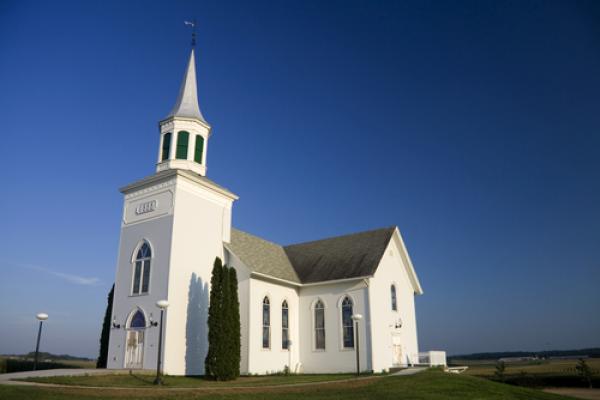Micah Bales asked a deep question. He suggests that the wealth in property we’ve inherited is hindering our work for social justice. He talks provocatively (as a spiritual challenge, he clarifies) about “burning the meetinghouse.” He asks, “What would happen if we put the movement of the Spirit ahead of property management?”
As I passed churches the other day I asked myself, “If there are so many churches in America, why does America look so unlike the Kingdom of God? Why are we strangers to our neighbors? Why do we have homeless poor among us? Why do sweatshops produce the majority of our goods? Why do we have the greatest per-capita incarceration rate in the world? Why are we choking the earth with fossil fuels?”
Many non-Christians lay the sins of our nation and even the world at the feet of the church. After all, a 77 percent of us self-identify as Christians (in 2009). So why is it that the Christian faith, the self-avowed enemy of greed, has allowed this world to happen?
I think that our churches have been slowly converted by the logic of the market, a logic which Paul called “the world.” Jesus called his disciples to disregard the economy, and later, in the midst of the Roman empire, the Acts church built centers of economic and spiritual wholeness that offered a concrete alternative to the mandatory emperor-worshipping cult which was physically represented by Caesar’s head on the golden coin: the money system. There was a prophetic imagination alive in the Acts church.
Read the Full Article

